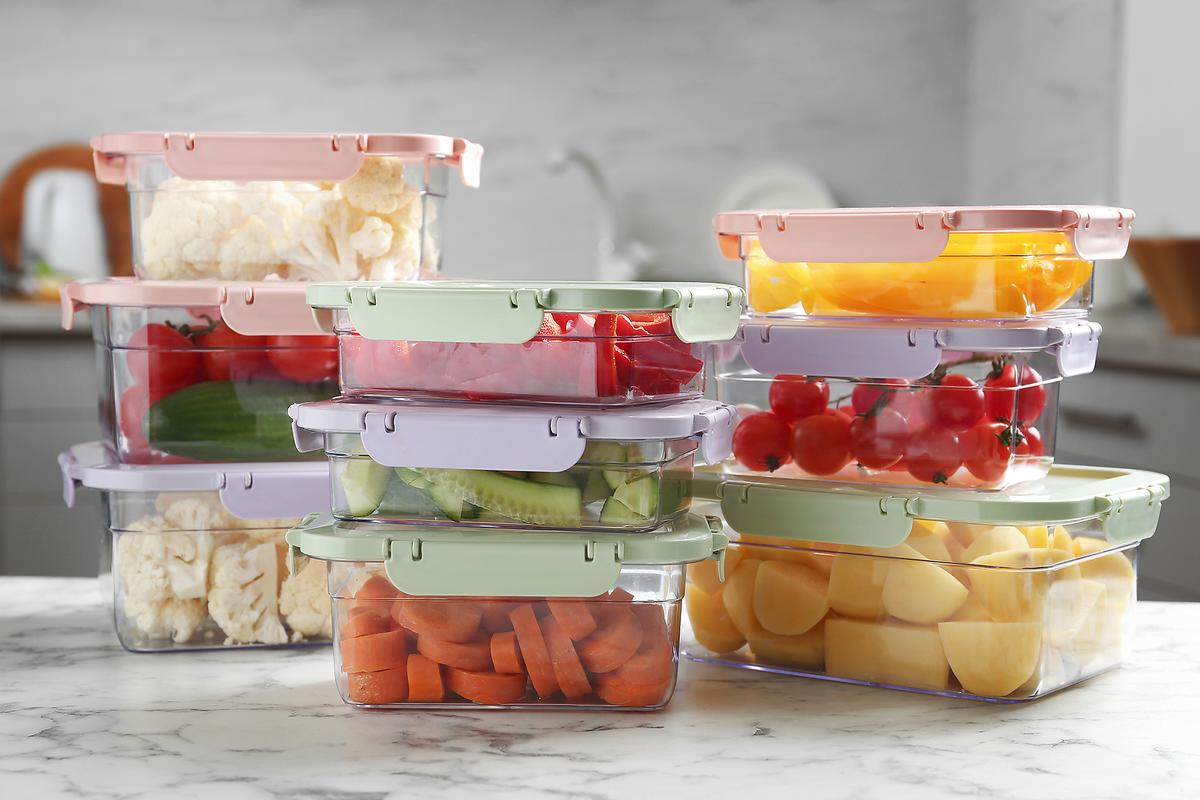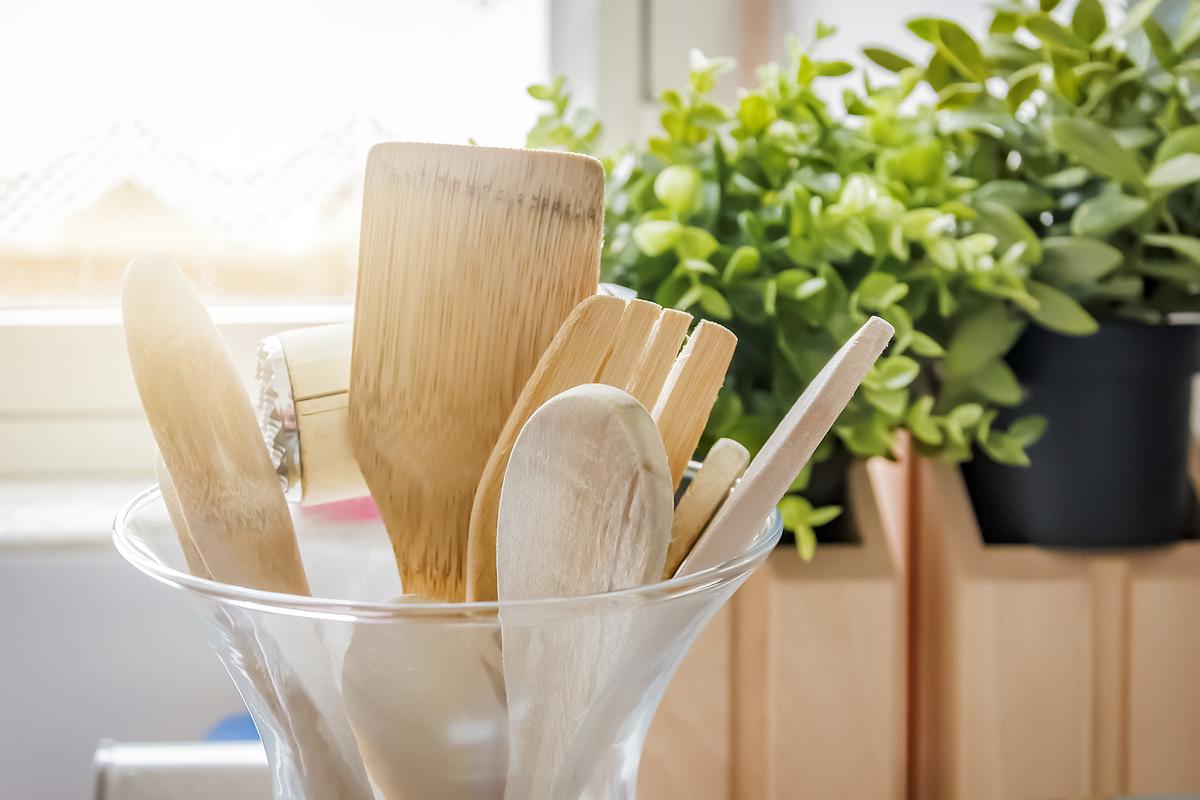Alternatives to Plastic: 5 Tips for Reducing Plastic Use in the Kitchen by 30Seconds Health

Plastics seem to have invaded every aspect of our lives, with the kitchen being no exception. The reason why their use has become prevalent all around the world is that they are inexpensive, durable and convenient to produce. However, plastics are taking a toll on the health of our environment and planet. According to the United Nations State of Plastics Report, only 9 percent of the plastic the world produces has been recycled, and single use-plastic, like plastic packaging, results in about half of our plastic waste. It's been estimated that people use one million plastic bottles per minute.
Why Are Plastics Bad?
Most plastics we use do not decompose. Plastics have a property of photo-degradation. It simply means that UV light decomposes the plastic into smaller pieces known as micro-plastics. Studies have found that plastic bags and Styrofoam can take up to 1,000 years to decompose and contaminate the water and soil.
About 13 million tons of plastic leak into our oceans each year. Many marine animals consume plastic, mistaking it for food, and end up dying with bellies full of plastic. When humans consume marine animals who manage to survive, they are only filling up their stomachs with toxins.
The use of plastic in our kitchens can lead to a number of health and environmental issues. We should try our best to keep plastic from coming into contact with our food, especially hot and acidic foods. Plastic cookware and storage boxes can seep toxins into the food they contain. Studies have found that 90 percent of bottled water and 83 percent of tap water contain plastic particles.
Simple Ways to Reduce Plastic Use in the Kitchen
Now that you are fired up to reduce plastic waste, here are five ways to do it:
- No More Plastic Bags: Plastic zip-top bags are appealing to use, but a large amount of them end up being dumped in the garbage. Whether you are packing lunch or storing food in the fridge, think of alternatives that may work better. Glass containers work great for meal prep, cut-up produce and leftover meals. They stack appropriately and are microwave safe. Mason jars are convenient for storing sauces, spices, yeast and anything that can be placed in the refrigerator doors. Bento-style boxes can be used to pack lunch and snacks.
- Forget Bottled Water: Hopefully you do not buy bottled water, but in case there are some who think that bottled water is safer than tap water, let us break it down. Bottled water is not just expensive, but plastic bottles are also unhealthy. Instead, adopt a healthy habit of carrying a reusable water bottle all the time to make sure your daily water consumption is met. Use filtered tap water in a BPA-free reusable stainless steel, metal or glass bottle.
- Wooden Utensils: Cooking utensils are an essential kitchen tool. No matter how simple your meal is, you always need at least one utensil to prepare your food. Utensils come in a wide range, from cooking spoons to spatulas, and even avocado slicers. When buying utensils for your kitchen, it is important to be conscious of the material they are made of. Like every other thing, utensils made of plastic are also commonly available and used. However, consumers can make a choice to opt for wooden utensils instead of plastic sets. Wooden utensil sets work even better than their plastic counterparts. They are firm and can last a long time. You can double their lifespan by conditioning them, which is a process where you clean the wooden utensils and then rub them with oil to bring the wood back to life.
- Flour Sack Towels: Instead of using plastic wraps to preserve your leftover food or partially used veggies, you can use flour sack towels. You can easily wrap fruits, bread, cheese and vegetables in these towels. Additionally, flour sack towels offer several other uses in the kitchen. They are highly absorbent, lint-free, reusable, washable and an economical option for anyone who wishes to eliminate plastic wraps from their kitchen. When you order, get them in bulk so you can use them as a fruit and veggie drainer, refrigerator and tray liner, and all-around kitchen cleaning.
Photo: FlourSackTowels.com
- Natural Cleaning Brush: We usually use cleaning brushes made of plastic and synthetic fibers to clean dirty dishes. There is an eco-friendly alternative to these plastic cleaning brushes. The handles of these brushes are made from a biodegradable material, such as bamboo, and the bristles are made from natural coconut fibers, which are biodegradable and eco-friendly. What this means is when it is finally time to toss out these brushes from your kitchen, you can put them into the compost instead.
In a Nutshell
A plastic-free kitchen is possible. The list does not end here, and surprisingly, there are eco-friendly alternatives available for every plastic-made kitchen tool. By switching to the above tools and reducing your plastic usage, you will not only enjoy health benefits, but also create a more sustainable future for the coming generations.
Take 30 seconds and join the 30Seconds community, and follow us on Facebook to get inspiration in your newsfeed daily. Inspire and be inspired.
Related Products on Amazon We Think You May Like:
30Second Mobile, Inc. is a participant in the Amazon Services LLC Associates Program, an affiliate advertising program designed to provide a means for us to earn fees by linking to Amazon.com and affiliated sites.














join discussion